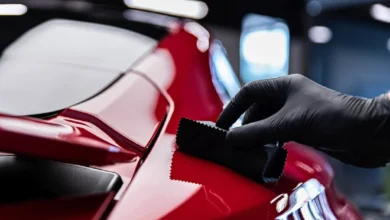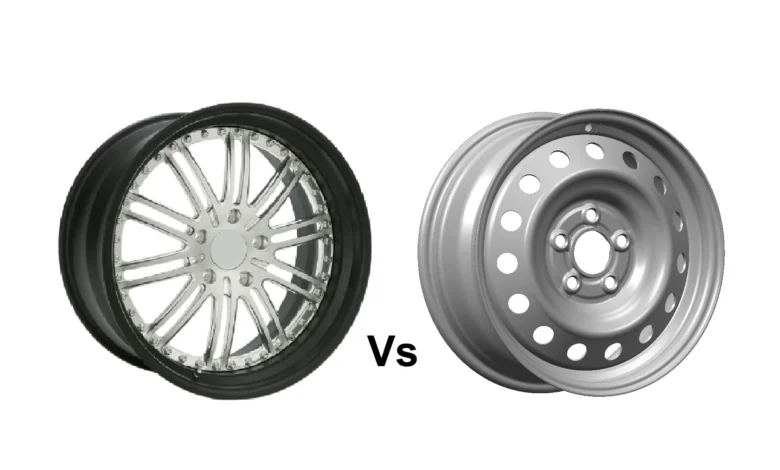
Selecting the right type of wheel can significantly impact your car’s performance, fuel efficiency, appearance, and even safety. However, many car owners struggle to decide between alloy wheels and steel wheels. Both options have distinct features and advantages, making it challenging to choose the right one for their needs.
With a multitude of opinions and choices in the market, it’s easy to feel overwhelmed. From durability and weight to cost and appearance, knowing what matters most can make this decision even more complex.
This article will break down the essential aspects of alloy and steel wheels, covering what makes each unique, their pros and cons, the types of vehicles they suit best, and how to decide which wheel is ideal for your car. By the end, you’ll be equipped with the knowledge to make an informed, expert-approved decision.
What Are Alloy Wheels?
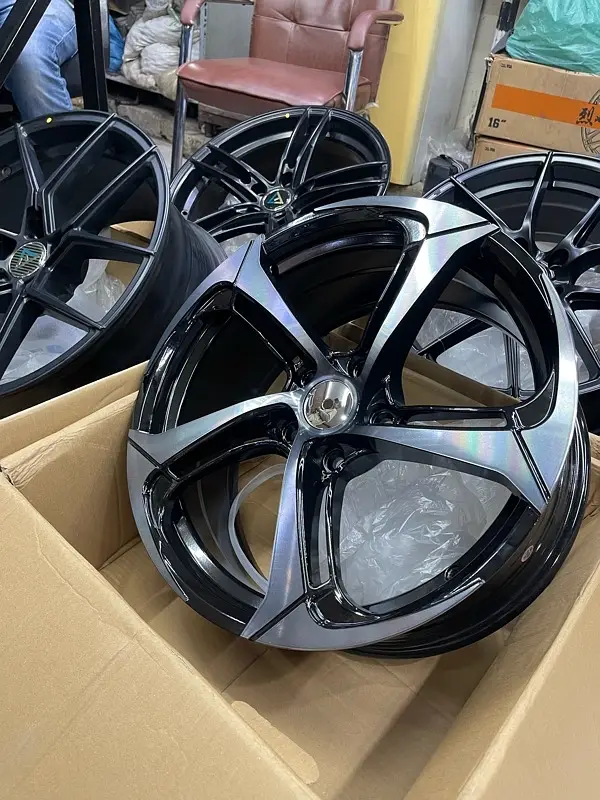
Alloy wheels are typically crafted from an alloy of aluminum or magnesium, sometimes incorporating other materials to enhance strength. The lightweight properties of these metals are the main reason alloy wheels are often preferred in high-performance and luxury vehicles. The manufacturing process, which may include casting or forging, also allows for intricate designs and a sleek, aesthetic finish.
Pros of Alloy Wheels
- Enhanced Handling and Acceleration
Due to their lightweight construction, alloy wheels reduce the vehicle’s unsprung weight, allowing for quicker acceleration and responsive handling. This is especially noticeable in performance or sports cars, where reduced weight on each wheel improves agility and cornering precision, giving drivers a smoother and more controlled driving experience.
- Better Heat Dissipation
Alloy wheels are highly effective at dissipating heat thanks to the thermal conductivity of aluminum. This quality is especially important for vehicles driven in warm climates or used for high-speed travel. By helping to regulate brake temperatures, alloy wheels reduce the risk of brake fade during intense driving, contributing to safer braking performance and prolonged brake component lifespan.
- Aesthetic Customization
One of the top reasons car enthusiasts prefer alloy wheels is the range of aesthetic options. With a variety of finishes, colors, and designs available, alloy wheels allow owners to customize the look of their car. From sleek, polished finishes to sporty, multi-spoke designs, alloy wheels can add significant curb appeal and enhance the overall appearance of any vehicle.
Cons of Alloy Wheels
- Higher Cost
Alloy wheels are generally more expensive to purchase and repair compared to steel wheels. The manufacturing process for alloy wheels is more complex, contributing to their higher price point. Additionally, if they get damaged, repairs can be costly due to the intricacies of alloy wheel designs and the materials used, often requiring specialized tools and expertis.
- Less Durable in Rugged Conditions
While alloy wheels are lighter and more stylish, they are more susceptible to damage than steel wheels, particularly when exposed to rough terrains or high-impact scenarios. Alloy wheels may crack or bend if they encounter potholes or rocky surfaces, making them less ideal for off-road or rugged driving conditions where durability is paramount.
- Prone to Corrosion
Although many alloy wheels come with protective coatings, they can still be vulnerable to corrosion over time, especially in areas exposed to road salts and moisture. Alloy wheels need regular maintenance to preserve their appearance and structural integrity. Without proper care, the metal may start to deteriorate, leading to a loss of both aesthetic value and durability.
Common Vehicles with Alloy Wheels
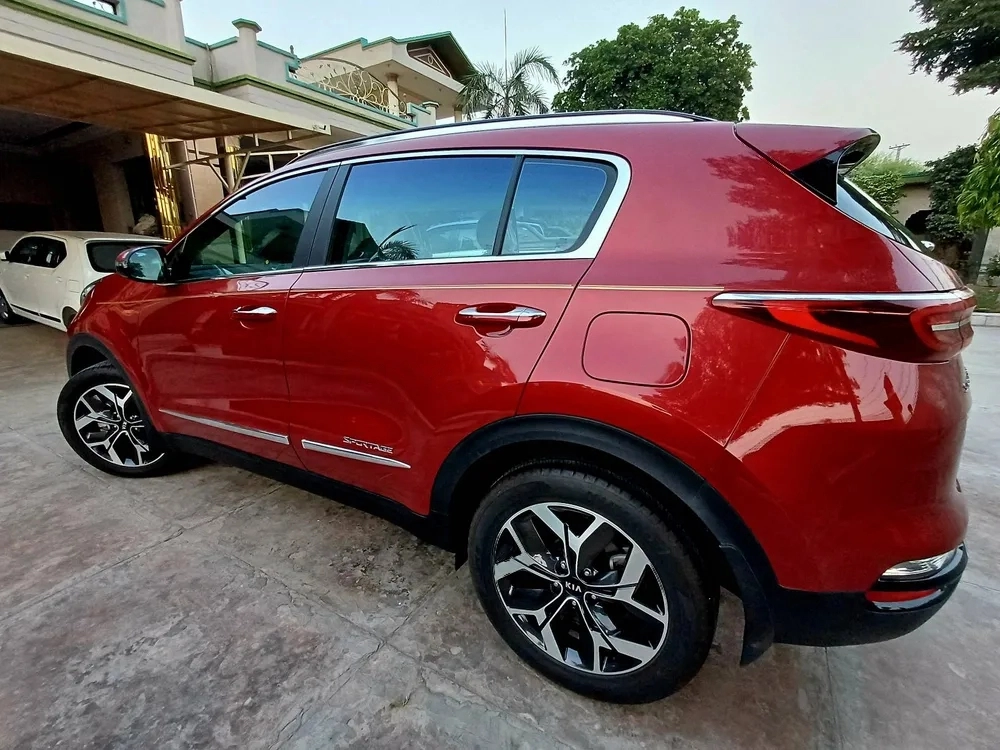
Alloy wheels are frequently found on sports cars, luxury sedans, high-performance SUVs, and some mid-range passenger cars. These vehicles benefit from the aesthetic appeal and performance enhancements that alloy wheels provide.
You might also like: Common Car Problems and Quick DIY Fixes
What Are Steel Wheels?
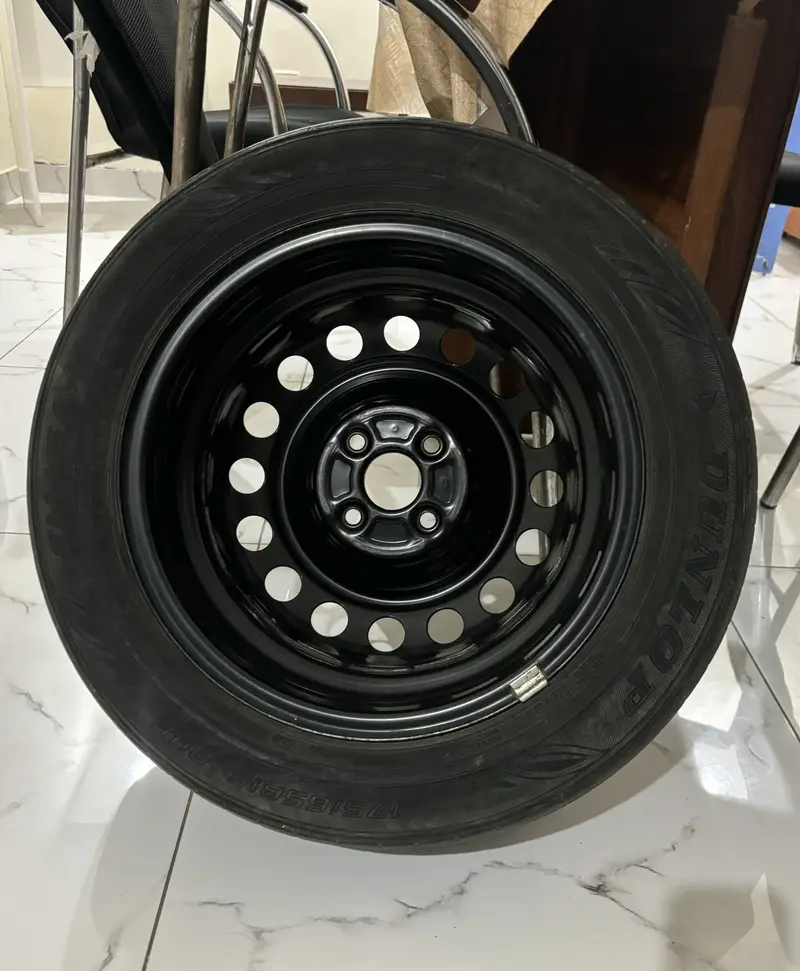
Steel wheels, also known as steel rims, are made from a combination of iron and carbon, which are stamped or rolled into shape. Known for their durability, steel wheels are thicker, sturdier, and less likely to crack under pressure compared to alloy wheels, making them suitable for tough driving conditions.
Pros of Steel Wheels
- Durable and Resilient
Steel wheels are highly durable and built to withstand rough road conditions, making them ideal for off-road driving and heavy-duty vehicles. Their sturdy construction allows them to handle impacts from potholes, curbs, and rough terrains without bending or cracking. This durability makes steel wheels a reliable choice for trucks, SUVs, and other vehicles that frequently encounter challenging environments.
- Affordable and Easy to Repair
Steel wheels are much more affordable than alloy wheels, making them a practical choice for budget-conscious car owners. Additionally, if damaged, steel wheels can often be repaired by hammering them back into shape without compromising their functionality or safety. This makes them a popular choice among fleet and commercial vehicle owners who prioritize low maintenance costs.
- Improved Stability in Certain Conditions
Due to their heavier weight, steel wheels provide extra stability on wet, icy, or uneven road surfaces. This additional weight can help improve traction, especially in snowy or muddy conditions, and provide a more controlled ride. For this reason, many drivers switch to steel wheels during winter to gain better control in challenging weather.
Cons of Steel Wheels
- Limited Aesthetic Options
Unlike alloy wheels, which offer a variety of stylish designs and finishes, steel wheels are typically available in plain, utilitarian designs. Most steel wheels come in a simple black or silver finish with fewer customization options. For drivers interested in a more stylish or personalized look, this can be a drawback, as steel wheels lack the sleek appearance of alloys.
- Heavier Weight Can Affect Fuel Efficiency
The additional weight of steel wheels can negatively affect fuel efficiency, particularly in city driving where frequent acceleration and braking are common. Although the difference may be minor, it can add up over time for drivers who prioritize fuel economy. Vehicles with steel wheels may also experience more strain on the suspension system, which can lead to slightly increased wear on suspension components.
- Potential for Rust
Steel wheels are more prone to rust and corrosion than alloy wheels, especially in areas where winter roads are treated with salt. While steel wheels can be treated with protective coatings, rust remains a concern, particularly if the coating becomes scratched or chipped. Rust can lead to long-term structural issues, making regular inspection and maintenance essential to ensure the longevity of steel wheels.
Common Vehicles with Steel Wheels

Steel wheels are typically found on trucks, SUVs, commercial vehicles, and budget sedans. Their cost-effectiveness and durability make them a preferred option for vehicles built to handle heavy loads or rough conditions.
Alloy vs Steel Wheels: Performance Comparison
Weight and Handling
The weight difference between alloy and steel wheels significantly impacts handling. The lighter weight of alloy wheels makes them better suited for fast driving and cornering, as they reduce the strain on the vehicle’s suspension system. In contrast, the added weight of steel wheels can provide more stability on rough terrains but may reduce overall agility.
Durability and Maintenance
In terms of durability, steel wheels are generally more resilient and less prone to cracking or bending. Alloy wheels, while strong, are susceptible to damage under harsh conditions and require regular maintenance to prevent corrosion.
Fuel Efficiency
Due to their lighter weight, alloy wheels can slightly improve fuel efficiency, particularly during stop-and-go driving in urban areas. However, for heavy-duty and off-road vehicles, the added stability of steel wheels can outweigh the minor increase in fuel consumption.
You might also like: Car Engine Issues: Symptoms, Causes, and Prevention
Aesthetics and Customization
Alloy wheels offer more customization options, with a wide range of colors and finishes to choose from, adding a unique look to any vehicle. Steel wheels, however, are more functional and less customizable, typically available in plain designs.
Best Wheel Type for Specific Needs
For Performance and Aesthetics
Alloy wheels are the best choice for car owners prioritizing performance and style. They’re lighter, come in various designs, and enhance handling, making them ideal for sports and luxury vehicles.
For Durability and Practicality
Steel wheels are the ideal choice for durability and practicality, especially for trucks, SUVs, and other heavy-duty vehicles that often encounter rough conditions. Their strength and resilience make them suitable for rugged terrain and extreme driving environments.
Seasonal Considerations
Many car owners switch to steel wheels during winter due to their ability to handle icy and snowy conditions with ease. The extra stability provided by steel wheels makes them more reliable in adverse weather conditions.
Frequently Asked Questions (FAQs)
What is the weight difference between alloy wheels and steel wheels?
Alloy wheels are lighter than steel wheels, often weighing around 3-5 pounds less per wheel, which enhances handling and performance. The reduced weight also decreases the load on suspension components.
How does alloy vs. steel wheels impact fuel economy?
Alloy wheels, being lighter, can offer a slight improvement in fuel efficiency, particularly in urban driving. However, for larger vehicles and off-road conditions, steel wheels may be preferable for stability despite the minor impact on fuel economy.
Which wheels are better for winter driving conditions?
Steel wheels tend to perform better in winter due to their durability and added stability. They are also more resistant to damage from road salts and harsh conditions.
Do alloy wheels or steel wheels affect braking performance?
Alloy wheels, with better heat dissipation, can reduce the risk of brake fade during extended driving, especially at high speeds. Steel wheels, while more durable, don’t offer this level of heat management.
Can alloy or steel wheels be easily repaired if damaged?
Steel wheels are generally easier and cheaper to repair since minor dents can be hammered back into shape. Alloy wheels, on the other hand, may require specialized repair methods, which can be more costly.
Conclusion: Which Wheel Type Is Right for You?
In the debate of alloy wheels vs. steel wheels, both have distinct advantages depending on your driving needs and preferences. Alloy wheels offer a lightweight, stylish, and performance-oriented option, ideal for everyday driving and sports cars. Steel wheels, on the other hand, provide durability, cost-efficiency, and stability, making them well-suited for rough terrains and winter conditions. Assess your priorities—whether it’s aesthetics, durability, or cost—and select the wheel type that aligns with your driving lifestyle.
We hope you found this article helpful. If you did, check out our blog for more great content like this.



